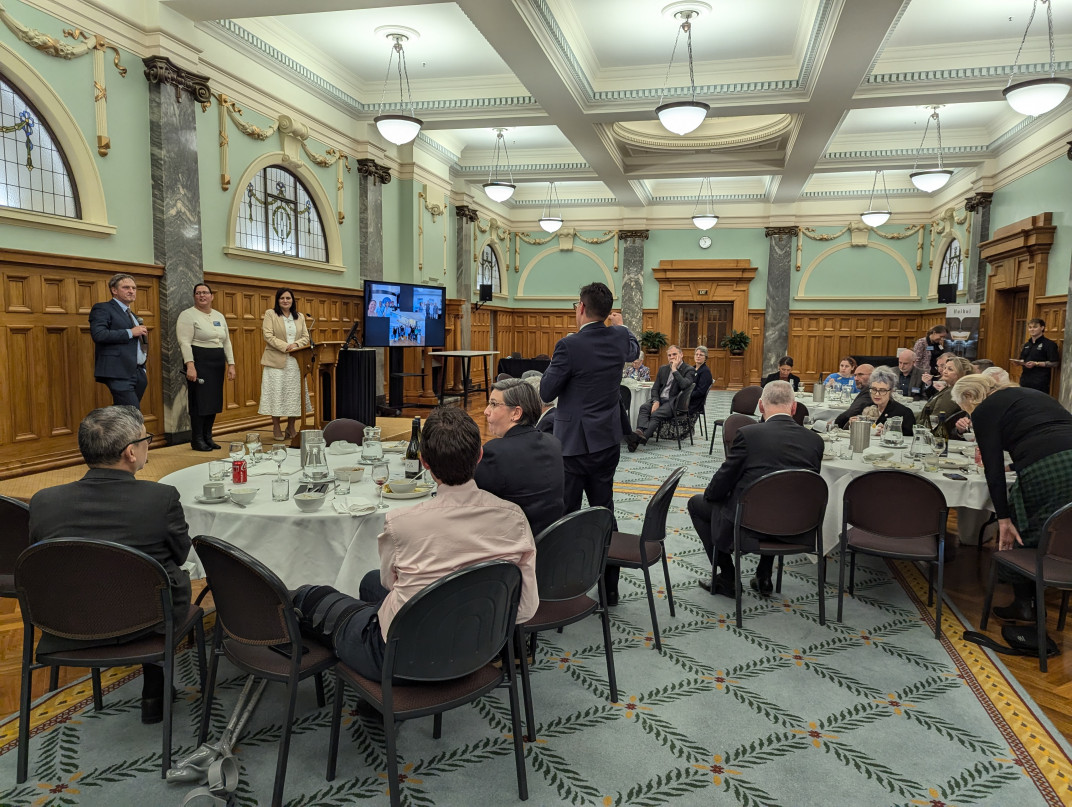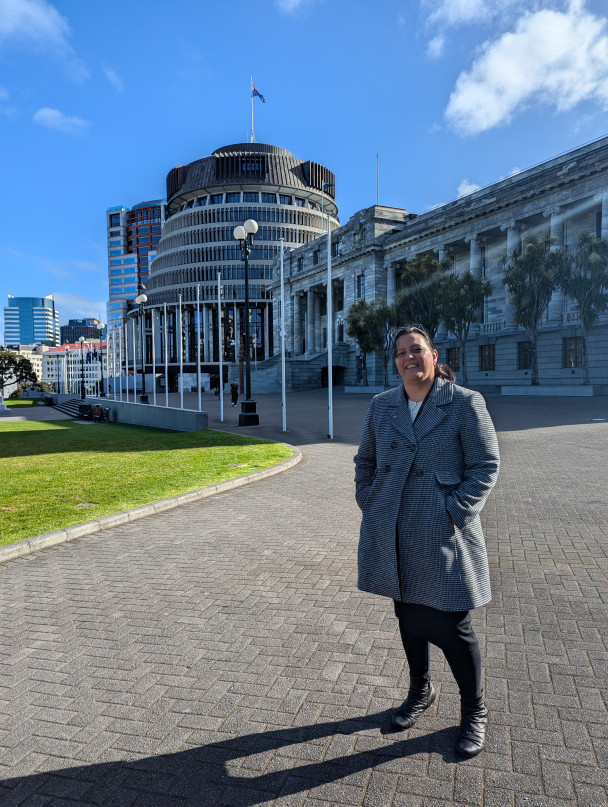Space!
The eighth and final event in our Speaker's Science Forum series for 2024 was held on 16 Whiringa-ā-nuku October at Parliament. Professor Richard Easther described how countries collaborate to invest in tools to allow the study of space. Associate Professor Pauline Harris spoke about the bourgeoning Māori aerospace industry.

Professor Richard Easther, Dr Pauline Harris, and host Dr Parmjeet Parmar MP listen to a question from an MP
Big Science from a Small Country
Professor Richard Easther
University of Auckland Waipapa Taumata Rau
Professor Richard Easther works at the interface of fundamental physics and astronomy, using observations of the sky to test theories of particle physics and to understand the origin and evolution of the universe. Professor Easther was Head of Physics at Auckland for nine years and helped to set up Te Pūnaha Ātea Auckland Space Institute. He is currently President of the New Zealand Institute of Physics.
Advances in our fundamental understanding of nature are often driven by billion-dollar facilities — both on Earth and in space — involving multinational teams of hundreds or even thousands of scientists; so-called “big science".
Professor Easther described research using these facilities, ranging from finding rocks that could collide catastrophically with the Earth through to understanding the physics of black holes. He described how New Zealand participates in this work and the ways in which small countries can reap the wider rewards of working on fundamental space research science.
From Cosmology to Neutrinos, From Matariki to Māori in Aerospace
Associate Professor Pauline Harris, Rongomaiwahine, Ngāti Rakaipaaka, Ngāti Kahungunu
Massey University Te Kunenga ki Pūrehuroa
Dr Pauline Harris is an Associate Professor with Te Pūtahi a Toi, the School of Māori Knowledge, at Massey University Te Kunenga ki Pūrehuroa. Dr Harris is an astrophysicist who has specialised in high energy neutrino production and inflationary cosmology. Her research currently focuses on mātauranga Māori associated with Māori astronomy.
Māori astronomy is now permanently celebrated as our newest public holiday. Dr Harris was part of the Advisory Committee that established the Matariki public holiday in 2022. She spoke about the meaning of the rising of Matariki.
Dr Harris described her work as Chair of the Māori Working Group on Aerospace. Space is a taonga (treasure) that must be valued and protected through sustainable practices that upholds kaitiakitanga (guardianship). Māori want to be involved in all levels of engagement with space: from research to leadership to economic development. It is important for Māori – among other Indigenous Peoples – to be part of the development of policy and international agreements relating to space. This year, as part of this work, Dr Harris travelled to the US to take part in meeting with collaborators NASA’s Indigenous Peoples Initiative to share valuable kōrero from their research kaupapa.

Dr Pauline Harris in front of Parliament
